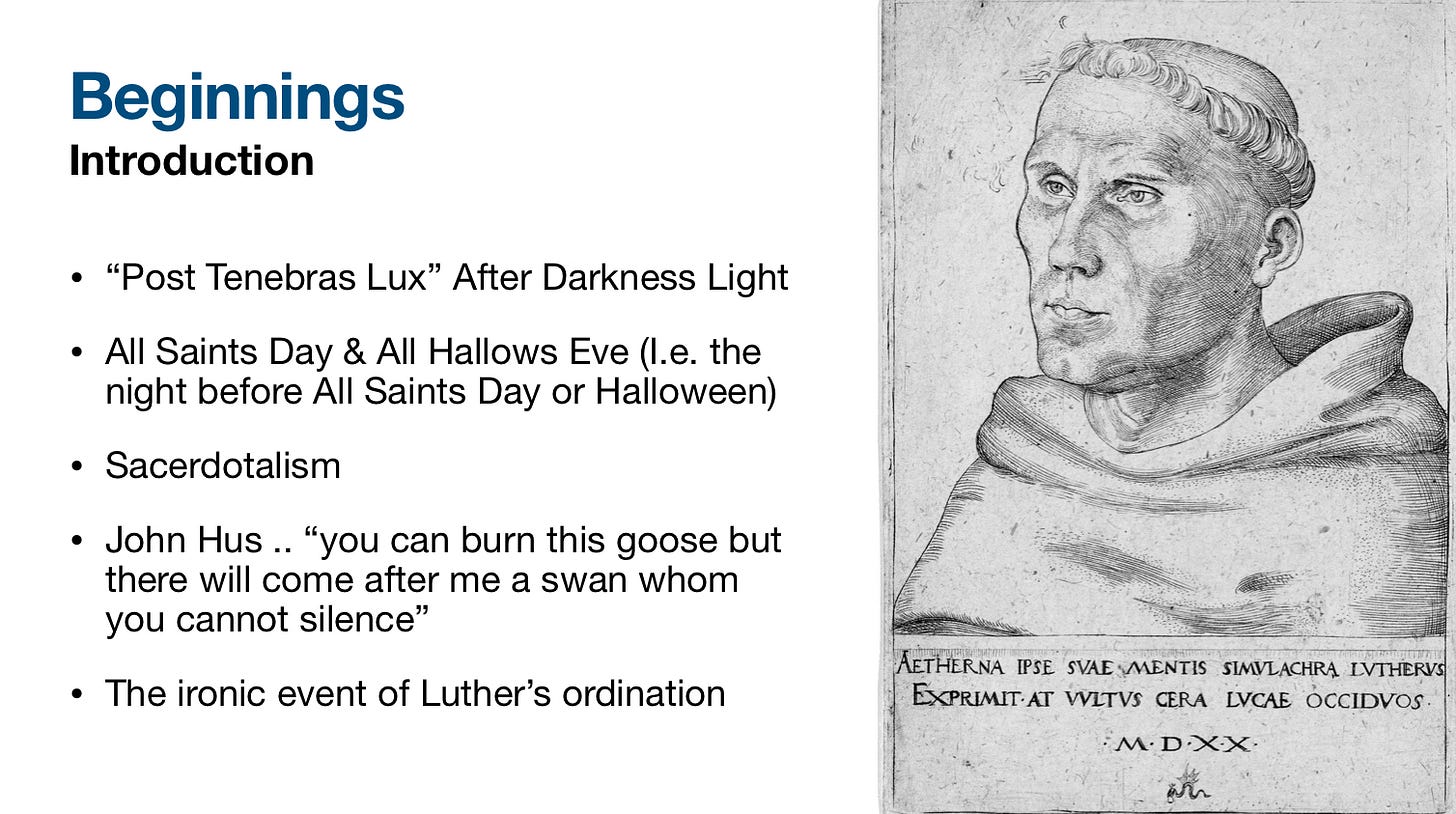After Darkness Light
Why I don’t celebrate Halloween, but something much, much better — the Light of the Protestant Reformation.
1 The reformation saying is: “Post Tenebras Lux” After Darkness Light.2 This describes the steady change from the early times to the middle ages. The question was of Salvation.
The celebration of Halloween is one of the oldest holidays around for many centuries. The reason why this event was celebrated in its origin of All Saints Day, the night before called All Hallows Eve (or the night before All Saints Day). The reason why the custom of dressing up as devils and goblins and things was that in the middle ages they believed the best way to drive Satan away was to mock him because he was proud (his point of vulnerability) and it was the example of the saints to do so, using the Scripture “Resist Satan and he will flee from you.”3
But we know that the Bible says that Satan masquerades as an angel of light, as someone who appears good and inviting to people, but deceives them. The point of halloween however was to mock Satan as a strategy of spiritual warfare and to exalt the saints whom the Roman Catholic church worshipped.4
In Rome developed something called “Sacerdotalism” which means salvation is accomplished through the priesthood and the sacraments of the Roman Catholic Church. This is what brought darkness over the light of the gospel temporarily in history.
Then there was John Hus. Luther was buried over the grave of the bishop who condemned Hus. The prophecy was: “You can burn this goose but there will come after me a swan whom you cannot silence.” Luther was welcomed as the prophetic fulfillment of the Swan that would come.
The irony was that when Luther presented himself for ordination, and laid himself on the ground outstretched, and in the chapel under the very stones, was the bishop that condemned Hus. Sproul likes to think that the bishop said to Hus when he gave his prophecy, he said “over my dead body!” And indeed the swan came and laid right over it!
Five years later I wrote a short story called The Smile of the Reformation. Inside that little book, I include an encounter of the Protestant Reformer, Pierre Viret preaching to his hometown in Orbe, Switzerland. In that sermon he argues against antiquity as a basis for truth, saying it is just as well to base one’s lives on sin and murder in particular, as to ground it in Roman Catholic doctrine. Halloween is old, but not everything old is true and good, in fact in terms of humanity, there is a lot of old things that from the fall are quite dark, not light.
I originally presented this in 2020 for Reformation Month, along with various other talks. This is just an excerpt of the original introduction adapted for an article.
[Sproul Lecture https://www.ligonier.org/learn/series/making_of_the_protestant_reformation/making-of-the-protestant-reformation-part/?]
Applications:
1. Read James 4:4–8. Does this text teach us to mock evil because it will destroy the devil’s weak point of pride? What does it plainly tell us?
2. Read 2 Cor 11:14–15. What does this teach us about how about how Satan actually works?
3. Read 2 Cor 10:3–6. What does the Bible teach is spiritual warfare and how to wage war biblically against Satan?



